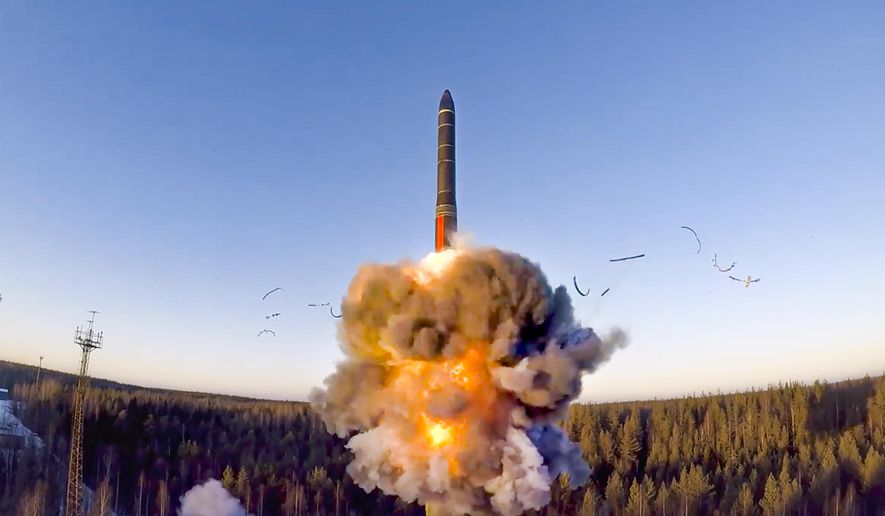The Stockholm International Peace Research Institute says the world’s nuclear arsenal is expected to grow in the coming decades due to modernization programs by the nine nuclear-powered states — Russia, the United States, China, the United Kingdom, France, India, Pakistan, Israel and North Korea.
“All of the nuclear-armed states are increasing or upgrading their arsenals,” Wilfred Wan, director of SIPRI’s Weapons of Mass Destruction Program, said in the European think tank’s 2022 yearbook. “Most are sharpening nuclear rhetoric and the role nuclear weapons play in their military strategies. This is a very worrying trend.”
SIPRI says Russia and the U.S. possess more than 90% of all nuclear weapons. At the very least, the other seven nuclear-armed states have announced their intention to develop or deploy new weapons systems.
“China is in the middle of a substantial expansion of its nuclear weapon arsenal, which satellite images indicate includes the construction of over 300 new missile silos,” SIPRI said in a statement released this week.
According to SIPRI, Russia has the largest stockpile of nuclear warheads (5,977), followed by the U.S. (5,428) and then China (350). Following the delivery of nuclear mobile launchers and submarines, several additional nuclear warheads are thought to have been assigned to operational forces in 2021.
SIPRI noted a slight decline in the global nuclear arsenal from January 2021 to January 2022 but said it resulted from Russia and the U.S. dismantling nuclear warheads that had been retired from military service several years ago.
On Tuesday, the International Campaign to Abolish Nuclear Weapons (ICAN) said there was a $6.5 billion increase in nuclear weapons spending in 2021, compared to the previous year. The nine nuclear-armed states spent $82.4 billion on their stockpiles in the year before the Russian invasion of Ukraine.
ICAN officials said the nuclear weapons industry received at least $322 billion for weapons-related work in 2021.
“A couple dozen companies, and their boards, have a vested interest in keeping nuclear weapons around forever. That’s why they spend millions on lobbyists, funding think tanks, and their board members sit in on elite foreign policy discussions — so that the contracts will continue to 2070 and beyond,” Susi Snyder, ICAN’s financial sector coordinator, said in a statement.
• Mike Glenn can be reached at mglenn@washingtontimes.com.




Please read our comment policy before commenting.